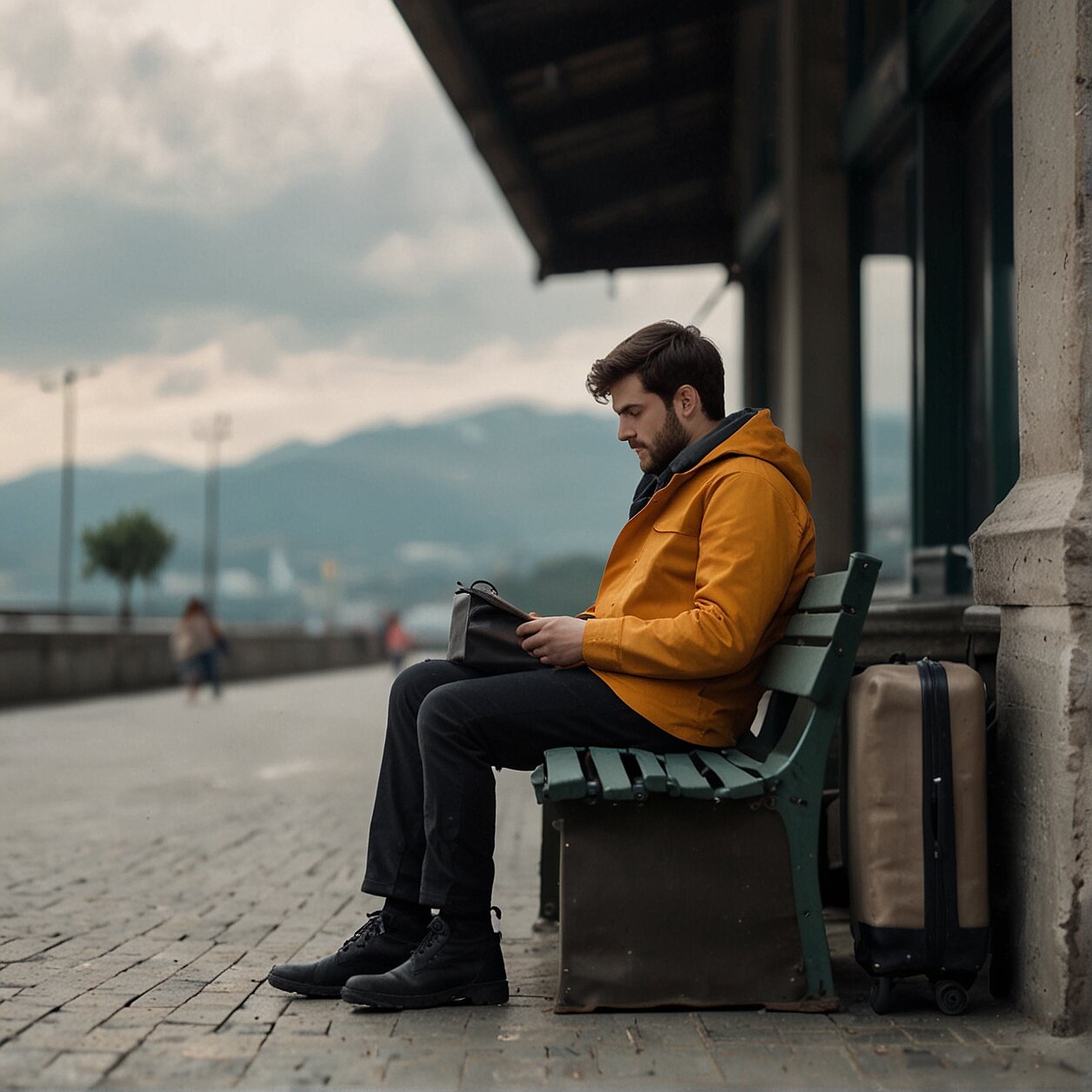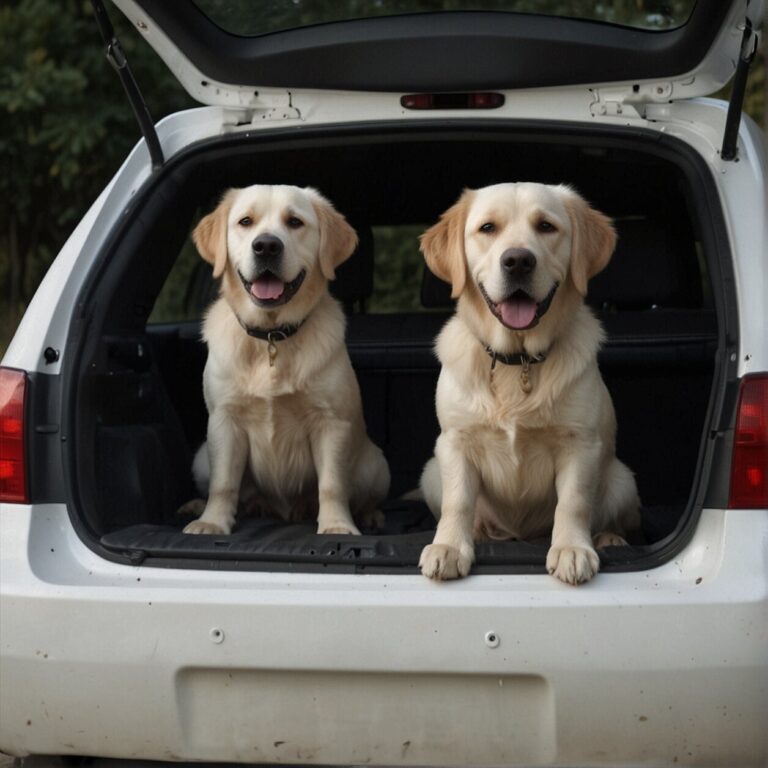Facing Challenges Head-On: Problem-Solving Tips for the Solo Traveler
Traveling alone is a journey in self-discovery and freedom, unlocking opportunities to absorb new cultures, form unique relationships, and push past personal boundaries. These lone expeditions can also present distinct challenges that test your problem-solving abilities under diverse conditions. This guide is curated specifically for you—the avid solo traveler seeking strategies to smoothen the trip without losing the spirit of adventure.
“Traveling – it leaves you speechless, then turns you into a storyteller.” – Ibn Battuta
From understanding the unique hurdles of solo travel, efficient pre-trip planning tips, to staying calm in high-stress situations, and transforming travel hiccups into personal growth moments—this article has you covered. You’ll also learn how to handle potentially dangerous situations with confidence and get valuable insights into frequently asked questions about travel dilemmas.
- Buckle up for an enlightening ride through the world of solo travels—filled with problem-solving tips, engaging stories, and practical solutions.
- Whether you’re planning a brief excursion or an extended journey, the secret to a successful solo trip lies in preparedness and a positive mindset.
- As you proceed through this guide, envision the valuable lessons shaping your future adventures and helping you emerge as an adept solo traveler.
Understanding the Lone Journey: The Unique Challenges of Solo Travel
So you’ve chosen to journey solo, a decision that carries with it an admirable blend of courage and thirst for adventure. However, navigating the world on your own can present some unique challenges that group or partnered travelers might not encounter. These obstacles can range from logistical issues, like lodging and transit complications, to more profound ones such as grappling with local customs and battling loneliness — challenges that can, at times, make the trip feel more daunting than daring.
Logistical issues often present the most immediate hurdle. As a solo traveler, you’re the only one responsible for making travel arrangements, which can mean mastering complex bus routes in a foreign language or locating last-minute accommodation in a fully-booked city. Not to mention the added challenge of bearing all costs alone, without a partner or group to share expenses such as cab rides or hotel rooms.
On a deeper level, solo travelers also must confront social hurdles. Faraway lands can mean new customs, traditions, or norms that differ dramatically from your own, and miscommunication or perceived rudeness can induce stress or sour relationships. Moreover, you might find yourself battling bouts of loneliness — a formidable challenge, especially on extended excursions.
Despite these challenges, countless travelers emBarking on a solo adventure find the experience liberating and transformative. Overcoming these issues not only bolsters resilience but also creates a profound sense of personal accomplishment. So let’s unpack these challenges together and arm you with the knows-hows needed to navigate your solo journey effectively and with confidence.

Prepping for Success: Essential Pre-Travel Problem-Solving Tips
Proactive planning is key to a successful solo adventure. Here’s your roadmap to a hassle-free journey.
Research: Take the time to thoroughly research your destination. Understand the cultural norms, local customs, and legalities. Learn common phrases in the local language. This knowledge can significantly improve your on-ground experience and interactions, and also prevent potential misunderstandings.
Essential Documents: Always keep digital scans and photocopies of your travel documents. This can prove helpful in case of loss or theft if you need to prove your identity or access emergency funds. Usually, these would include your passport, tickets, travel insurance, credit/debit cards, and any essential medical prescriptions.
Packing Smart: As a solo traveler, you’ll be responsible for carrying your luggage at all times. Efficient and essential packing is key. Consider the weather, cultural norms, and activity-specific gear while packing. Invest in quality luggage that is sturdy, secure, and easy to carry.
Connectivity: Staying connected is crucial. Ensure your cell phone will work in your destination, or consider buying a local SIM card when you arrive. Many travelers also opt to use international calling cards or a portable Wi-Fi device to stay connected.
Financial Preparedness: Have multiple money resources, don’t rely on a single source. This could include cash, travelers’ checks, credit cards, and prepaid travel cards. Alert your bank about your upcoming travel to avoid any fraud alerts that could disrupt your access to funds.
All of these tips combined will set you up for success, helping minimize challenges you may face while on your solo adventure. Enjoy the process, and remember, the journey is just as important as the destination.
Staying Calm: How to Handle High-Stress Situations
Remember, solo traveling often involves unexpected scenarios that can spike your stress levels. Be it missed connections, lost valuables, or unanticipated weather conditions. How you handle these stressful incidents can significantly impact your overall travel experience. So let’s discuss some practical strategies for navigating high-stress travel moments.
Firstly, it’s crucial to remember that patience is your best ally in any stressful scenario. High-stress situations often fill us with an urgency to react immediately, but hasty decisions may not always be the best. Whether dealing with flight delays or lost luggage, take a deep breath, evaluate your options and make a calm, considered choice.
Manifesting positive thinking can also noticeably lessen your stress levels. Instead of focusing on the negatives or the things that went wrong, ask yourself, “What can I learn from this?” The answer might surprise you and shift your perspective on the situation entirely.
Lastly, don’t forget the power of communication. If you’re feeling overwhelmed, reach out to friends or family back home or make use of the numerous forums and online travel communities. Sharing your situation often eases the burden and you can also glean great advice from fellow travelers who may have faced the same challenges.
The key lies in understanding that obstacles are just a part of the journey, not the end of it. With a clear mind, positive attitude, and a little patience, you can overcome these stressful situations and continue your adventurous solo endeavors with added resilience.
Embracing Challenges: Turning Travel Hiccups into Learning Opportunities
Challenges undoubtedly are part and parcel of a solo journey. Instead of letting these hiccups sideline your adventure, try looking at them as teachable moments.
Missed your train? Yes, it’s frustrating, but it gives you the chance to explore or get to know a city or town you’ve ended up at unplanned. A language barrier causing misunderstandings? It could push you to pick up a few local phrases, deepening your cultural immersion and rapport with natives.
Every difficult situation presents an opportunity for growth and expansion of your comfort zone. Travel hiccups, more often than not, result in the most surprising and memorable experiences. They challenge your problem-solving skills, resilience, and flexibility.
Consider every problem a discovery waiting to be made. One practical approach would be to always carry a mental toolkit of backup plans and emergency resources. Research and save important information such as local emergency numbers, nearby pharmacies, and the address and contact of your country’s local embassy.
Remember, travel hiccups are not roadblocks but stepping stones in your journey, leading you to new experiences and adventures. With a problem-solving mindset, you can navigate these unexpected situations and turn them into the highlights of your trip. Embrace the challenges. After all, isn’t overcoming obstacles a prime part of what makes travel so enriching?

Safety First: Handling Emergency Situations with Confidence
Solo traveling can bring unexpected encounters; hence, learning to handle emergency situations is crucial. Start by equipping yourself with knowledge about emergency services in your destination. Research online or consult your travel agent to understand the best ways to reach medical help, authorities, and embassy services, if required. Save crucial phone numbers on your phone and write them down as a backup. It’s not paranoia, it’s simply being prepared.
Basic first aid knowledge is also a life-saver. Before you depart, consider taking a basic first aid course if you don’t already have these skills. This can be vitally important, particularly if you’re traveling off the regular tourist trail where help may not be easily accessible.
Travel insurance is not a luxury—it’s a necessity. It can protect against everything from minor incidents to major emergencies. Make sure it covers your planned activities, medical expenses, as well as loss or theft of your possessions. It’s worth doing some research to find a reliable insurance provider that offers comprehensive protection with a hassle-free claims process.
Stay connected with people back home. Make sure someone you trust knows your travel itinerary and check-in with them regularly. Should anything go wrong, they’ll have a general idea of your whereabouts and can spearhead getting help to you.
Always trust your instincts. If something doesn’t seem right, it probably isn’t. Prioritizing your safety doesn’t mean you’re being overly cautious—it simply means you’re making your travel experience as smooth and enjoyable as possible.
In conclusion, confidence in handling emergencies doesn’t just happen—it’s built through preparation, and having a plan laid out beforehand brings that much-needed peace of mind. Remember, the joy of solo travel is greatly amplified when you are assured of your safety, allowing you to fully immerse yourself in the wonders of your journey.
FAQ’S
Just when you think you’ve got all the essentials in check, numerous questions might still be lingering in your mind. That’s perfectly normal. Every solo traveler has individual queries that relate directly to their specific circumstances – you’re not alone. This FAQ section strives to answer some of those recurring and critical questions that solo travelers often ponder upon. Prepare to delve into some common inquires, may this information guide and prepare you for your solo journey.
What are some common challenges faced by solo travelers?
As a solo traveler, you’ll come across a myriad of challenges during your journey. While liberating and enriching, solo travel is often marked by hurdles that may feel overwhelming at times. Here’s a rundown of some of the most common issues you might encounter:
Loneliness: Many solo travelers grapple with feelings of isolation and homesickness, especially during longer trips or when visiting destinations where language barriers exist. Learning to enjoy your own company and finding ways to connect with locals and fellow travelers can help diminish this issue.
Cultural Differences: Venturing into unfamiliar territory often means encountering entirely new customs and traditions. You may inadvertently offend locals or feel out of place. Researching your destination before you go can help you feel more comfortable and respectful of local cultures.
Financial Constraints: Budgeting can become challenging when you are your own accountant. It can be difficult to manage unexpected expenses that come up on the road. Recognizing this before your journey can help you budget wisely and stay prepared for unexpected costs.
Communication Challenges: Traveling alone in a country where English is not widely spoken can pose communication difficulties. Learning basic phrases in the local language or relying on translation apps can go a long way.
Safety Concerns: Being alone may increase vulnerability to safety risks. Staying cautious and aware of your surroundings, as well as having emergency contacts and plans in place, can buoy your confidence while traveling.
Remember, these challenges are part and parcel of the solo travel experience. Acknowledging them helps you plan for potential solutions, ensuring a more enjoyable and enriching journey.
How can I effectively plan my trip as a solo traveler?
To plan your trip effectively as a solo traveler, you need to ensure several elements are in place. Consider the points below to help you plan your upcoming adventure: Detailed Itinerary:
Always start with a carefully constructed itinerary. This should include your travel destinations, accommodation arrangements, and the key attractions you want to visit. Having a schedule not only makes your trip more organized, but it also makes it easier to share your plans with family or friends for safety purposes. Research:
Understanding your destination is paramount. Research on the local culture, laws, customs, and any travel advisories or safety alerts. This will equip you to respect and adhere to local norms, enhancing your travel experience and ensuring your personal safety. Accommodation and Transportation:
Before departure, booking your initial accommodation and understanding how local transportation works can alleviate a lot of unnecessary stress on arrival. Always have a backup plan for accommodation in case of unforeseen circumstances. Emergency Preparedness:
Having a plan for emergencies is crucial. This includes knowing where the nearest embassy or consulate is, local emergency numbers, and basic first aid skills. Access to a reliable communication device is also key. Financial Blueprint:
Consider your budget and manage your finances wisely. Keep some cash for emergencies and have a way to access funds if necessary. You might also want to look into travel insurance for extra peace of mind.
To conclude, effective trip planning revolves around thorough research, financial management, and foresight. You have the power to shape your solo travel experience positively by investing time in planning.
How can I manage my finances effectively while traveling alone?
Effectively managing your finances as a solo traveler can be done in a variety of sensible ways. Let’s first tackle budgeting. To start off on the right foot, begin by outlining an estimated budget for your whole trip. Identify your expected expenses such as transport, accommodations, food, sightseeing activities and even incidentals. Having a clear financial plan can help you set spending limits and avoid the heartache of running out of money midway through your journey.
Next, consider using travel or budgeting apps. These digital tools can help you track your expenses real-time and monitor your spending habits. You’ll find it easier to stay on budget when you know exactly where your money is going.
But what about foreign currency, you might ask? While it’s advisable to carry some local cash for emergencies and inevitable cash-only situations, a safer and more convenient way to carry money would be to use a travel credit card or a pre-loaded travel card that can be used internationally. These provide protection against theft or loss and are accepted in most places.
Finally, always have a safety net. Unforeseen problems may arise that require financial resources. Therefore, earmarking a portion of your budget as an emergency fund can truly save the day. Remember, effective financial management does not begin and end on your trip, it should start from the minute you start planning and continue even after you return home.
What are the best ways to handle accommodation issues as a solo traveler?
Navigating accommodation as a solo traveler can seem daunting, but with the right approach, you can turn this challenge into an easy endeavor. The key is to take proactive steps and be flexible. Here’s how you can deal with accommodation issues while venturing alone.
Sometimes, the best defense is a good offense. Reserve your accommodations well in advance to avoid the stress of last-minute bookings. These can not only be more expensive, but they also limit your options. Using trusted online booking platforms such as Booking.com or Airbnb can give you a wide range of accommodation types and price ranges.
Even when your plans are tightly scheduled, it’s essential to have contingency plans. In case of unexpected circumstances like cancellations or overbookings, consider options like local guest houses, homestays or even hostels as an alternative. Remember, when traveling alone, versatility is critical.
Research is essential for a solo traveler. Before making a reservation, get as much information as you can about the location, safety measures, amenities, and reviews from previous visitors. Avoid accommodation in isolated areas, instead, opt for lodging in busy, well-lit streets or near major landmarks for added security.
Staying connected with people back home is also crucial. Always share your staying details with a trustworthy individual and regularly update them about your movements. This extra measure ensures that someone always knows your whereabouts, providing an additional layer of safety.
Finally, never be hesitant to ask for help or advice. Whether it’s contacting the local tourism office, using online travel forums, or even reaching out to fellow travelers, making use of the resources available can make your accommodation arrangements much smoother.
Accommodation might seem a complex issue to handle as a solo traveler, but with these practical tips, you are well-equipped to overcome any challenges you might encounter on the road.
How can I handle food and dietary issues while traveling alone?
Food and dietary constraints can sometimes be troublesome when you’re traveling alone. However, don’t let this curb your enthusiasm. With a bit of planning and some practical tactics, you can navigate your food journey with ease and savor the multi-cuisines the world has to offer!
Firstly, before you embark on your adventure, research the local cuisine of your chosen destination. Check out the typical dishes, ingredients used, and even the common allergens. This will equip you with useful knowledge and help you make informed choices, especially if you follow a particular diet or have food allergies.
Learn basic phrases. Know how to politely explain your dietary needs or restrictions in the local language. This isn’t just helpful in restaurants or food stalls, but also in case of emergencies where you might have to express food-related concerns.
When it comes to meals, planning is key. Carry healthy, non-perishable snacks like nuts or protein bars to keep you fueled during transit or when good food options are sparse. Also, it’s a smart idea to book accommodations with kitchen facilities. This way, you can control what and when you eat, and even save money by cooking food purchased from local markets.
Stay mindful of food safety to avoid health issues. Stick to places where food is prepared fresh and proper hygiene practices are visible. When in doubt, follow the locals—they know best where delicious and safe food is served.
Last but not least, stay hydrated. Carry a reusable water bottle and ensure you’re drinking clean, safe water. In some countries, it might be safer to stick to bottled water.
Remember, the fact that you’re traveling solo shouldn’t result in comprising your health and diet. These tips will help you retain control over your food choices and ensure a delightful culinary voyage!







